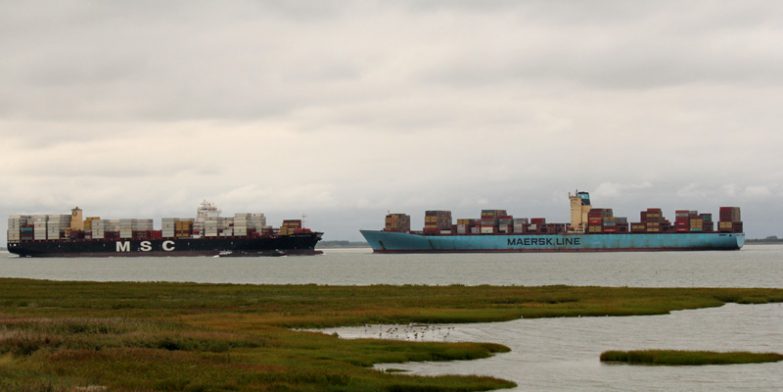
Container shipping has entered a period of significant transformation, with major carriers introducing new alliance structures that will shape trade routes for years to come.
These changes coincide with ongoing operational challenges, including prolonged voyage times around Africa due to Red Sea diversions and a strategic wave of blanked sailings to facilitate the transition.
Four new alliances replace old structures
The dissolution of the 2M Alliance between Maersk and MSC has led to the emergence of new groupings: Gemini Cooperation (Maersk and Hapag-Lloyd), Premier Alliance (ONE, Yang Ming, and HMM), MSC operating independently, and the largely unchanged Ocean Alliance (CMA CGM, COSCO, and Evergreen). These shifts have significant implications for service design, vessel deployment, and overall trade flows.
A key distinction between the alliances lies in their approach to network design. Gemini Cooperation has adopted a hub-and-spoke model, where large vessels call at central hubs before cargo is distributed to regional ports via smaller feeder ships. This prioritises reliability and schedule integrity but requires additional transshipment.
Gemini’s ambitious target of >90% schedule reliability is a significant improvement over the industry’s 2024 average of 50-55% and hinges largely on the Port of Tanjung Pelepas (PTP), which will serve as the primary hub for 20 Gemini strings, including all seven of its Asia-Europe services. By consolidating operations at PTP, Gemini aims to optimise transshipment efficiency and minimise delays.
However, the success of this model depends on PTP maintaining smooth operations and on third-party ports, such as London Gateway, accommodating Gemini’s vessels without congestion or berthing delays. Any disruptions in these ports could negatively affect the network’s performance, as seen in previous industry-wide challenges.
A key question remains: will shippers prioritise reliability over cost savings? While improved schedule adherence can reduce inventory holding costs, past attempts to introduce premium services have faced resistance due to cost sensitivity and market fragmentation.
In contrast, MSC is focusing on an extensive direct service model, increasing the number of port-to-port connections without relying heavily on regional feeders. This approach offers shippers more direct routing options but may face greater schedule variability.
For Ocean and Premier, the new structure does not bring major changes. While Ocean Alliance maintains its existing service design, it has introduced an additional Far East–Europe service and included Yangpu, China, in two transpacific routes. Meanwhile, Premier maintains most of THE Alliance’s previous network, compensating for Hapag-Lloyd’s departure by securing slot-sharing agreements with MSC on select routes.
Blanked sailings shape transition period
To manage the transition, carriers have strategically deployed blanked sailings, temporarily removing capacity from certain routes. This ensures a smoother handover between alliances while accommodating the seasonal slowdown following Lunar New Year.
In February, 166,402 TEUs of capacity are scheduled for blank sailings, over three times the amount withdrawn in January. The impact of these cancellations is expected to be felt in European discharge ports as vessels take longer routes around Africa. So far, 12 blanked sailings have been recorded in week 11, with seven in week 12 and eight in week 13.
While these adjustments present short-term challenges, the new alliance structures are expected to enhance service reliability and efficiency in the long run.
As container shipping enters a critical phase of transition and service differentiation, the Global Forwarding team are ready to help shippers navigate changes with ease and effectiveness, to secure their ocean supply chains.
With offices across Europe and Asia, we provide seamless support and communication from origin to destination. Flexible, efficient ocean freight solutions that meet the evolving challenges of a shifting market.
EMAIL Andy Costara today to explore how we can enhance your supply chain efficiency in challenging times.





